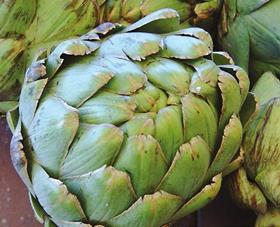
British children who are frequently fed vegetables during the first few weeks of weaning are likely to be more accepting of new vegetables, a new study has found.
Researchers from UCL, in London, recruited a group of mothers from the UK, Greece and Portugal and who were advised how to introduce five vegetables, one per day, as their baby’s first foods, over a period of 15 days.
After the first 15 days, the mothers were told to continue to offer vegetables but also to start introducing other age-appropriate foods such as fruit.
One month after weaning, children were then fed unfamiliar vegetable (artichoke) and fruit (peach) purées in a taste test, and a researcher recorded how much of it they ate and how much they appeared to enjoy these foods.
In the UK, children ate almost twice as much of the unfamiliar vegetable compared with control children whose parents were not advised to offer vegetables as first foods. UK mothers and researchers also rated the children as liking the vegetable more.
In Portugal and Greece there was no significant effect of the intervention on infants’ intake of or liking for the vegetable.
Researchers said this is likely to be because common first foods given to UK children include fruits and ‘baby rice’, while vegetables, particularly green or bitter tasting varieties, are offered less frequently.
In contrast, vegetables are regularly offered as first foods in Portugal where vegetable soups are a common weaning food. This is reflected in later dietary patterns as Portuguese schoolchildren have some of the highest levels of vegetable intake in Europe.
“The findings of this study suggest that repeatedly offering a variety of vegetables to infants at the start of weaning may work to increase vegetable acceptance in countries where vegetables are not already given as first foods,” said researcher Alison Fildes.”
“However, we don’t know yet whether this effect will last throughout toddlerhood and into later childhood, so this will need to be explored in future studies.”



